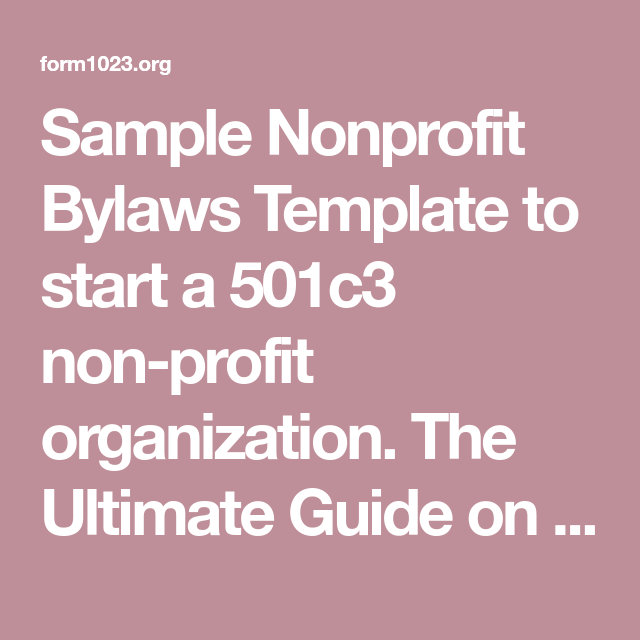Still Awaiting Your 501c3 Documents? Here's Why

In the realm of non-profit organizations, obtaining 501c3 status from the IRS is a crucial step. This status, which grants tax-exempt privileges, allows organizations to receive donations, qualify for grants, and enjoy several other fiscal benefits. However, the wait for these documents can feel eternal, leaving many organizers in limbo. This article delves into why 501c3 approvals can take so long, outlines what you can do during the waiting period, and explains how to ensure you're on track for approval.
Why the Delay?

1. Volume of Applications: The IRS receives numerous applications for tax-exempt status annually. With limited staff and resources, processing each application can take several months. The sheer number of applications means backlogs are common, especially if there's a seasonal spike in submissions.
2. Complexity of Applications: Not all applications are straightforward. Some require further investigation due to the nature of the organization's activities, funding sources, or potential conflicts with IRS regulations. Here's how the IRS might categorize your application:
- Simple Cases: Organizations with clear, well-documented missions, straightforward funding, and no legal or financial complications.
- Complex Cases: Organizations involved in sensitive activities, political campaigns, or those with significant assets or revenue which require deeper scrutiny.
3. Incomplete Applications: Often, delays are due to missing or incorrect information. Here are common issues that could push your application to the back of the queue:
- Insufficient detail about organizational structure or governance.
- Inaccurate or incomplete financial projections.
- Missing or improperly filled out forms (e.g., Form 1023 or 1023-EZ).
What Can You Do During the Wait?

While you're waiting for your 501c3 approval, here are some productive steps you can take:
- Develop Your Organizational Structure: Use this time to finalize your bylaws, policies, and governance documents. A well-defined structure can help when you receive your status.
- Plan Fundraising Strategies: Although you can't offer tax deductions yet, you can still plan for future fundraising events, grant applications, and donor acquisition. This preparation can speed up your fundraising efforts once approved.
- Community Engagement: Start building relationships within the community. Network, volunteer, and show the impact your organization can have, even before your 501c3 status is confirmed.
- Educational Outreaches: Educate potential donors and volunteers about what your organization does, even if it's not official yet. This can build a base of support that will be beneficial later.
📌 Note: While preparing for fundraising, remember that any donations received before obtaining the 501c3 status might not be tax-deductible for the donors. Inform them of this to manage expectations.
Keeping Track of Your Application

To ensure you're on the right path and to manage expectations:
- Stay Informed: Regularly check the IRS website for updates on application processing times. They often provide expected timelines that can give you an idea of when to expect a response.
- Documentation: Keep meticulous records of all correspondence with the IRS, including emails, letters, and submission receipts.
- Contact IRS: If it's been significantly longer than the IRS's stated processing times, contact them. Here's how:
- Phone: 1-877-829-5500 (Toll-free)
- Email: This is generally not advisable as emails can be ignored. If you must email, use the Taxpayer Advocate Service (TAS) email options.
Handling a Rejection or Request for More Information

If your application is rejected or if you receive a request for additional information:
- Address Issues Promptly: Respond to any requests for more information immediately. Delays in your response will lead to delays in the IRS's review process.
- Appeal or Correct: In case of rejection, you have the right to appeal or correct the issues that led to the rejection. Here’s what to do:
- Review the rejection notice carefully for the reason(s) for denial.
- If appealing, prepare your appeal with the necessary documentation to clarify or correct the IRS's concerns.
| Scenario | Action |
|---|---|
| Incomplete Information | Provide all requested documents or explain the missing items thoroughly. |
| Discrepancy in Financials | Amend your financial documents or provide an explanation for any discrepancies. |
| Regulatory Concerns | Clarify how your organization's activities comply with IRS regulations. |

To wrap up, the journey towards obtaining your 501c3 status can be lengthy, but understanding the reasons for delays and being proactive during the wait can significantly ease the process. Use this time to strengthen your organization's foundation, engage with your community, and prepare for a successful launch once your application is approved. Remember, the benefits of being a recognized tax-exempt entity far outweigh the waiting period, enabling you to make a greater impact in your community with tax incentives for donors and increased credibility.
How long does it usually take to get 501c3 approval?

+
The IRS suggests that standard Form 1023 applications can take between 3 to 6 months, but actual times can vary widely due to seasonal changes, backlog, and application complexity.
Can I expedite the 501c3 approval process?

+
While there is no official “expedite” service for 501c3 applications, ensuring your application is complete, accurate, and free from discrepancies can help avoid delays. If there are extenuating circumstances, you might be able to request expedited processing through the IRS’s Taxpayer Advocate Service.
What can I do if my 501c3 application is rejected?

+
If your application is rejected, you can appeal the decision by addressing the IRS’s concerns and correcting any errors in your application. Follow the instructions provided with the rejection notice or contact the IRS for further guidance.
Should I inform potential donors about our pending 501c3 status?

+
Yes, it’s crucial to inform potential donors that any contributions might not be tax-deductible until the 501c3 status is officially confirmed. Transparency helps manage expectations and fosters trust in your organization.
What steps can I take to ensure my organization remains compliant with IRS regulations after approval?

+
After receiving your 501c3 approval, continue to adhere to IRS regulations by filing annual information returns (Form 990), maintaining accurate financial records, ensuring your activities align with your stated purpose, and engaging in permissible lobbying activities in compliance with IRS limits.



